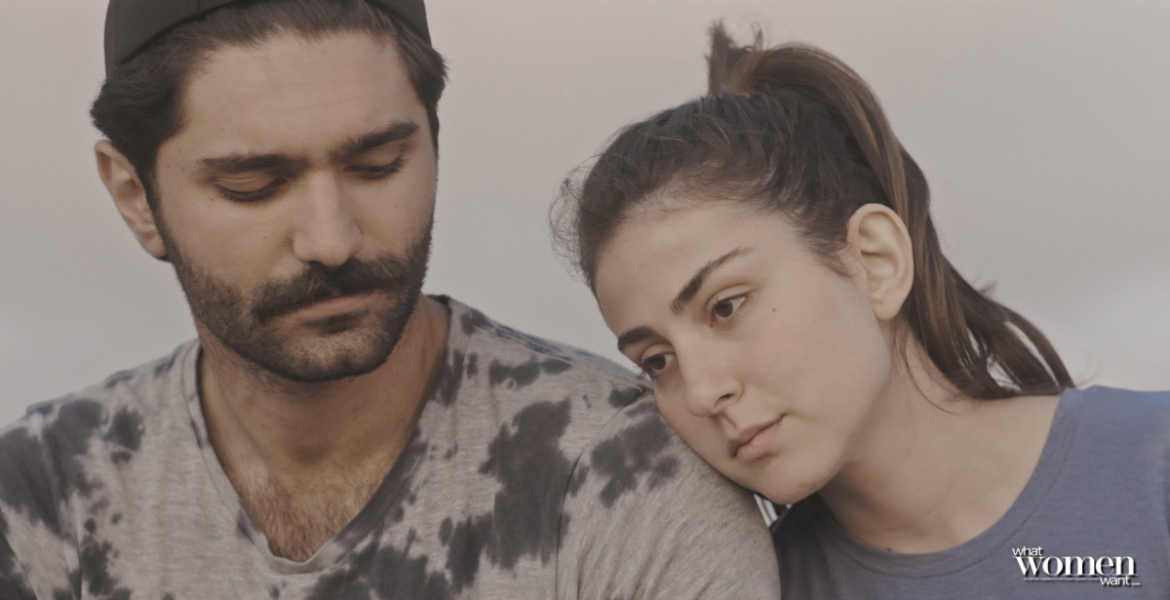When the Beirut port explosion ripped through the city on August 4th, 2020, it left devastation that can never be measured in numbers alone. It also left Daniela Stephan with a new purpose. The filmmaker, who lost her home that day, found herself roaming the streets of Beirut, searching for her missing cat amid the ruins. This deeply personal experience would later shape The Sun Sets on Beirut, a docu-fiction about loss, resilience, and identity.
The Backstory:
“I lost my house,” Stephan recalls. “That was the day I truly realized how unstable everything is in this country. Tomorrow, anything can happen.” At the time, she had a completed script for a different film. But the explosion changed everything. “I didn’t care anymore about the film I had written. About six months later, I realized I wanted to make a film about a young girl in Beirut during this time.”
The result is a story that follows Mounia, a young girl searching for her lost cat in a city shattered by the explosion. Her quest is deeply symbolic. “On August 4th, my cat escaped the house,” Stephan shares. “As I looked for her, I saw street cats—lost, tired, limping. Some had no eyes. They became a metaphor for what we were feeling as humans.”
Themes of the Film:
Stephan’s exploration of grief and identity is rooted in her own experiences. Born in 1996, six years after Lebanon’s 15-year civil war ended, she describes her generation as “in limbo between life and death.” They inherited the traumas of their parents without the tools to process them. “Our parents didn’t have the time to understand their trauma. We were left with a deep sense of loss and confusion,” she explains. “The cat became the best metaphor to speak about something broader—loss, identity, and trauma.”
In crafting The Sun Sets on Beirut, Stephan chose a docu-fiction style to balance raw reality with creative distance. “At the time, I asked myself: ‘Do I want to do documentary or fiction?’ Fiction gave me the distance I needed,” she says. While the characters are fictional, they’re inspired by real events and emotions. The cast and crew, all Lebanese and living in Beirut during the explosion, brought their personal experiences to the project. “The actors understood. They brought their own stories from August 4th. We wanted to tell the story of a lost generation—a generation searching for what’s been taken from them.”
Beirut, a Main Character:
The city itself plays a starring role in the film. For Stephan, Beirut is more than a backdrop; it’s a living, breathing character. “Beirut has been reconstructed seven times,” she says. “I grew up in its streets. It’s overwhelming, embellished, alive. The walls scream with messages from its people. None of the graffiti in the film was staged; it was already there, part of the city’s voice.”
Stephan’s film doesn’t just speak to Beirut’s people. It resonates far beyond Lebanon. At screenings, viewers from across the Arab world shared their own histories of loss and resilience. “People came up to me and talked about their countries, their struggles. It reminded me that at the end of the day, we’re all humans. We all suffer. We all bleed the same,” she reflects. “Wars thrive on dehumanization. When you recognize the humanity in others, you’re less likely to accept war.”
Stephan’s goal was to create a deeply personal film for Lebanese society—a reminder to stick together despite political and religious divides. But its impact has been broader than she expected. “It’s culturally specific but universal. When I was making the film, I didn’t anticipate this connection.”
Through Mounia’s journey, The Sun Sets on Beirut captures the weight of intergenerational trauma, the fragility of identity, and the enduring spirit of a city. “We didn’t write our own history,” Stephan says. “In Lebanon, history is passed down through stories, not textbooks. That’s dangerous because history repeats itself.”
Stephan’s film is both a rebellion and a reflection. It’s a way of preserving memory while questioning the future. In searching for her lost cat, Mounia searches for something larger—something many in Beirut and beyond are still trying to find.

